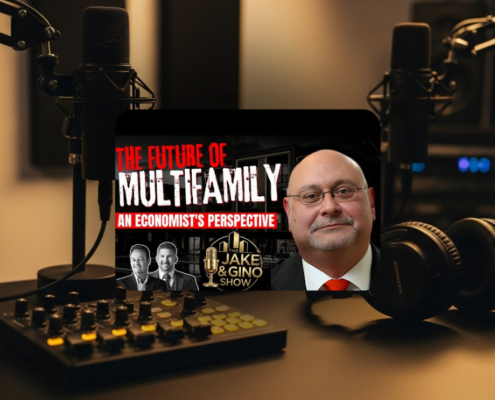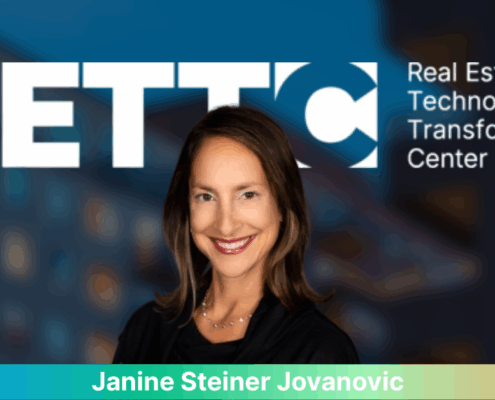Fellow industry experts Marcie Williams of RKW Residential, Linda Masterson of Pegasus Residential and Jeremy Thomason of Convolo Capital, analyzed the less prioritized S element of ESG.
“The industry has focused on environmental and sustainability goals for some time, and rightly so,” said LeaseLock CEO Janine Steiner Jovanovic. “Today, there’s more focus on social impact. Especially since COVID, which required greater attention to the needs of renters, and especially those with affordability challenges.”
Given the current climate, funding ESG projects can be a challenge. Grants and other incentives are now available to help get Social initiatives across the finish line.
“Freddie Mac and Fannie Mae have selective programs that afford better financing terms to housing providers that meet ESG guidelines,” explained Jeremy Thomason, Principal at Convolo Capital. “The Community Reinvestment Act requires bankers to contribute tangibly to social programs.” Thomas also shared that considerable funding is available from institutional investors who support programs such as rent reporting.
“In a competitive market like we’re in today, every opportunity needs to be seized,” said Linda Masterson, Senior Vice President of Operations for Pegasus. “We tap into state, county and local utility companies for rebates that can help cover the cost of our ESG efforts.”
All stakeholders benefit from the implementation of ESG programs. “There’s a strong desire across the industry to improve people’s lives through the housing we provide,” said Steiner Jovanovic. “Looking at it holistically, renters benefit from greater access to housing and lower living costs, operators are the heroes who deliver the solutions for renters, and investors achieve profits generated from higher occupancy, reduced turnover, and greater renter satisfaction.”
“It’s easy to do ESG. We make it part of our culture,” added Marcie Williams, CEO of RKW. “Taking care of our communities is good for everyone. Many residents in every building just meet the threshold to live there. We have an obligation to make their lives better.”
Steiner Jovanovic also moderated the session Bye, Bye, Bye, Getting Rid of Outdated Operations. Industry experts Sharon Hatfield of Cushman & Wakefield, Matt Rogers of RPM Living, and Steve Hallsey of Sundance Barn Ranch reviewed emerging trends and tech solutions.
“Navigating the sea of single-solution technologies with incompatible software presents a challenge to the industry,” said Steiner Jovanovic. Despite being designed to empower property teams and create a better renter experience, the patchwork nature of individual solution providers can create inefficiencies and new challenges.
Hallsey, a revered industry veteran, cautioned against deploying technologies that sacrifice the human aspect of operations. “We’re talking about improving customer service and our online reputation scores, and yet we’re also using technologies that can destroy all of that if not implemented correctly,” Hallsey said. “If we do anything that diminishes the ability of on-site personnel to be part of the solution, it’s not the right solution.”
Panelists debated the merits of centralization and regional teams replacing traditional on-site staffing models. “We tend to be near-sighted on the topic of centralization,” Rogers said. “We have to approach it in a balanced way. It’s not just about expense reduction. It’s also about creating a better experience for our residents.”
The evolution of amenities and renter preferences was also discussed during the session. The industry is trending towards creating common areas that serve as an extension of the home. Well-designed work spaces, multipurpose rooms, and specialty fitness programming are becoming increasingly valued by renters.
“I’ve watched business centers go from awesome to outmoded. Today, we’re leasing work pods to our renters, and they’re in high demand,” Hatfield said. “Since COVID, people are working from home more. Creating spaces where renters can work comfortably, reflect and socialize – anything that can be an extension of their home – is extremely important.”
Also discussed were traditional property fitness centers, which are evolving into flexible spaces that can accommodate specialized exercise classes with equipment renters prefer.
“COVID created a unique opportunity to revisit the property staffing model. We were forced to operate remotely and centrally, New services and solutions were created to support the change COVID forced on us, yet the industry returned to staffing norms,” shared Steiner Jovanovic. “We have to evolve. Traditional staffing is on its way out, because it’s misaligned with both renter and employee preferences as well as the need to reduce expenses. We have to reinvent how we run our properties. It’s going to be a long road, but we’re going to get there. We have to.”












